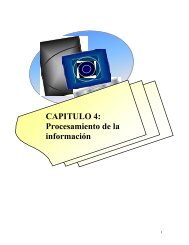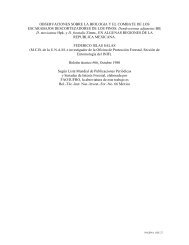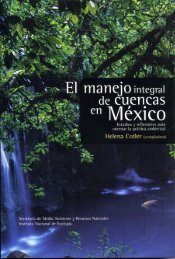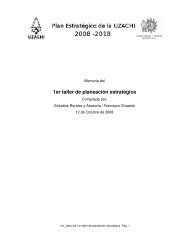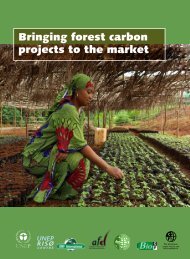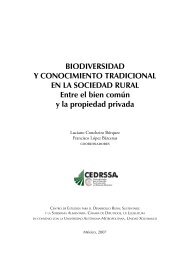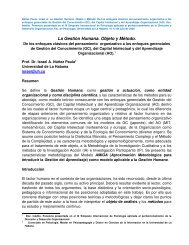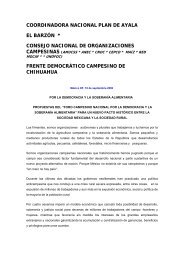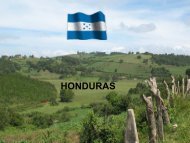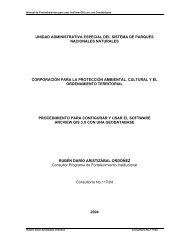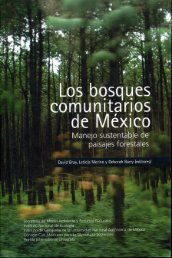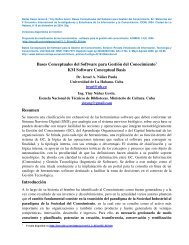STATE OF THE WORLD's INDIGENOUs PEOpLEs - CINU
STATE OF THE WORLD's INDIGENOUs PEOpLEs - CINU
STATE OF THE WORLD's INDIGENOUs PEOpLEs - CINU
- No tags were found...
You also want an ePaper? Increase the reach of your titles
YUMPU automatically turns print PDFs into web optimized ePapers that Google loves.
EMBARGOED UNTIL 14 January 2010<strong>STATE</strong> <strong>OF</strong> <strong>THE</strong> WORLD’S INDIGENOUS PEOPLESCHAPTER Not V for distributionHEALTHBy Myrna Cunningham 1The United Nations Declaration on the Rights of Indigenous Peoples states that “Indigenous individuals havean equal right to the enjoyment of the highest attainable standard of physical and mental health. States shalltake the necessary steps with a view to achieving progressively the full realization of this right”, 2 thus affirmingthe basic human right to life and health that is guaranteed under international human rights law. It also goeson to state, “Indigenous peoples have the right to promote, develop and maintain their institutional structuresand their distinctive customs, spirituality, traditions, procedures, practices and, in the cases where they exist,juridical systems or customs, in accordance with international human rights standards”. 3 This implies a greaterobligation of states to uphold not only the indigenous individual’s right to health but also the collective right ofindigenous peoples to maintain and use their health systems and practices in pursuit of their right to health. TheDeclaration further specifies, “Indigenous Peoples have the right to their traditional medicines and to maintaintheir health practices, including the conservation of their vital medicinal plants, animals and minerals. Indigenousindividuals also have the right to access, without any discrimination, to all social and health services”. 4 TheDeclaration thus establishes a framework for addressing the health situation of indigenous peoples thatincludes the obligations of states both to provide accessible, quality health care to indigenous peoples and torespect and promote indigenous health systems, each of which must be fulfilled in order to ensure the health ofindigenous peoples.The commitment of United Nations Member States to the Millennium Development Goals (MDGs) is an importantstep forward in improving the health of millions of people who live in poverty around the world. However, byfailing to ground the goals in an approach that upholds indigenous peoples’ individual and collective rights,the MDGs fall short in addressing the health disparities that persist between indigenous peoples and otherpoor, marginalized groups. By advancing the dominant paradigms of health and development rather than anapproach based on individual and collective human rights, the MDGs also promote projects that are potentiallydetrimental to indigenous peoples, and which violate their rights to their collective land, territories and naturalresources. Moreover, because the cultures and worldviews of indigenous peoples are not taken into account inthe formulation of the MDGs, the goals do not consider the indigenous concept of health, which extends beyondthe physical and mental well-being of an individual to the spiritual balance and well-being of the community asa whole. To improve the health situation of indigenous peoples, there must thus be a fundamental shift in theconcept of health so that it incorporates the cultures and world views of indigenous peoples as central to thedesign and management of state health systems.The indigenous concept of health and health systemsNational, regional and international health institutions have typically defined health as the biological, physical andmental well-being of an individual. The World Health Organization (WHO), for example, defines health as “a stateof complete physical, mental and social well-being and not merely the absence of disease or infirmity”. 5 However,1Written in collaboration with the Center for Indigenous Peoples’ Autonomy and Development (CADPI).2United Nations Declaration on the Rights of Indigenous Peoples, Article 24.2.3Ibid., Article 34.4Ibid., Article 24.1.5Constitution of the World Health Organization (1946), 1.156 | CHAPTER V



